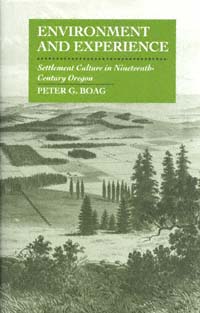Checklist: M.A. in History
Program Requirements
The program consists of at least 30 credit hours beyond the bachelor’s degree, distributed as follows:
- History 509/510: Field Course in American History – 6 credits
- History 527: Public History: Theory and Methodology – 3 credits (fall semester)
- History 528: Seminar in Public History – 3 credits (qualifies as a departmental seminar; offered every other spring semester)
- History 529: Interpreting History through Material Culture – 3 credits (qualifies as a departmental seminar; offered every other spring semester, alternating with History 528)
- History 580: Historiography – 3 credits
- History 598: Internship – 3 credits (traditional letter grade credit; up to 12 hours)
- History 700: Master’s Research, Thesis, and/or Examination – 6 credits
Up to 9 related graduate credits can be taken outside history. Related courses are offered in anthropology (archaeology), agricultural economics, architecture, business administration, communication, economics, geography, English, environmental science, forestry and range management, interior design, law, political science, and sociology.
Doctor of Philosophy Program
Checklist: Ph.D. in History
Program Requirements
The program consists of at least 72 credit hours beyond the bachelor’s degree, distributed as follows:
- History 509/510: Field Course in American History – 6 credits
- History 527: Public History: Theory and Methodology – 3 credits
- History 528: Seminar in Public History – 3 credits (qualifies as departmental seminar)
- History 529: Interpreting History through Material Culture – 3 credits (qualifies as department seminar)
- History 580: Historiography – 3 credits
- History 598: Internship – 3 credits (traditional letter grade credit; up to 12 hours)
- History 800: Doctorate Dissertation Exam – 21 credits
World/Comparative Field
The World/Comparative Field provides spatial and temporal context to complement Primary and General Fields and to provide research and teaching breadth. The World/Comparative field must be different from the Primary and General Fields.
List of Field of Study Faculty
All PhD students, except those who take World History as their General Field, must take 9 credits of graduate courses to fulfill the requirements of World/Comparative Field as their complementary field. The World/Comparative Field will have dual purposes of (1) providing opportunities that allow students to learn and explore global and comparative perspectives of students’ research subjects, and (2) offering credible training in world history as a teaching field. All students are required to take 570, 571, and one more field course (either 571, a graduate field course outside their General Field, or a 400 or 500-level course outside History). They must pass all three courses with the minimum grade of B+. No preliminary examination is required for the World/Comparative Field.
Up to 12 related graduate credits can be taken outside history (see related courses above).
Optional Alternatives
Another primary field can be substituted for American history if circumstances so warrant. For example, a candidate might be interested in obtaining a curatorship at a history museum in London, England. A logical primary field would be modern European history with perhaps a secondary field in U.S. history, depending on the scope of the museum. Any change from the primary field in American history or selection of a non-history secondary field, for instance anthropology, must be approved by the departmental public history committee.
Internships
A supervised internship is an integral part of the public history track. It affords students the opportunity to work as temporary employees, and it provides them with firsthand experience (in some cases compensated) in settings such as archives, museums, historical societies, or federal agencies. Students at WSU have been interns at local, state, regional, and national sites, including local historical societies, the Washington State Historical Society, the Idaho State Historic Preservation Office, the Nevada State Parks System, the National Archives–Central Plains Region, the Bureau of Indian Affairs, the U.S. Forest Service, the Historic American Engineering Record, and numerous private research firms or agencies. Most, though not all, travel to off-campus locations to serve internships. Summer internships are common. Students who enroll in 10 hours of History 598 (Internship) will have spent a full semester as on-site interns.
Internships provide students with practical insights into potential historical employment. Private sector or institutional supervisors provide mentoring relationships, and they introduce students to the professional networks common to the public historian’s work environment.
Students are expected to identify an appropriate internship at least one semester prior to beginning the internship. During that semester, the student will organize an I-1 meeting and present to the committee a draft Memorandum of Understanding that describes in detail the work to be performed, the time and credit involved, the compensation (if any), and the obligations of all parties—the student, the faculty advisor, and the internship supervisor. The major professor will write a brief memo to the director of graduate studies indicating that a successful I-1 has been held.
Academic credit can be earned by registering for History 598, Internship. For each semester hour of credit, the student works 50 hours. At some point in their program all students must register for at least 3 hours of internship credit.
Advising Procedure
Students must have a major professor to be admitted to the Ph.D. program. Because of the internship and the interdisciplinary emphasis of the public history track, it is imperative that the student draw up a degree program and choose the members of an advisory committee by the end of the second semester.
The major professor must be a member of the graduate history faculty who has fields and/or skills related to one or more of the following: the primary field, the coordinate primary field, or the area of specialization.
The advisory committee will comprise the major professor (chairperson) and a minimum of 2 other faculty members, one of whom may be from another department representing the student’s interdisciplinary concentration.
 Dr. Matthew Sutton, associate professor of history, will present an Honors Distinguished Faculty/Humanities Fellowship lecture in October.
Dr. Matthew Sutton, associate professor of history, will present an Honors Distinguished Faculty/Humanities Fellowship lecture in October.








